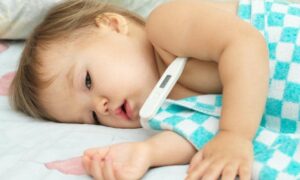SHARE WITH FRIENDS:
What diseases can put a baby at risk during the chill period?
😮Gut problems
In breastfed infants, diarrhea is more fluid during the first three days and is dark green or dark in color. By 4-5 days, it turns yellow and muddy. Diarrhea or constipation as soon as a child eats is considered a sign of adaptive processes in the body. However, diarrhea up to 6-7 times a day or diarrhea for several days is a good reason to see a doctor. Doctors emphasize that the mother should eat properly so that the child does not have diarrhea and symptoms such as constipation. It is best to keep constipated foods out of your diet until the baby's body adapts to the environment.
🤢Skin rash
On the first and second days, the baby's skin may become red, and by day 3-5, the skin surface may move. This is normal. However, the recurrence of various types of rashes on the facial skin depends on the composition of the products consumed by the mother or the adaptive state of the baby's skin. Breastfeeding women are also prescribed a diet to prevent various rashes on the baby’s skin.
🤧Nose finish
In the first days of a baby's life, nasal congestion can be observed due to the fact that it is just adapting to the external environment. At such times, gently clean the nostrils using a cotton swab. Remember to use a separate swab for each nostril. If the runny nose does not go away in 2-3 days, you can consult a pediatrician and use the necessary drops.
😲White whitening
In infants with bowel problems, white mouth is often observed, a process explained by the adaptive state of the oral cavity. But sometimes it is also caused by an infection of the mucous membrane of the oral cavity. If you notice that your baby’s mouth is pale, soak a sterile bandage in warm boiled water and gently wipe the oral cavity. If the whitening is frequent and the child is accompanied by discomfort, loss of appetite, be sure to see a doctor.
🤒If the wind blows…
In infants, the process of colds does not occur spontaneously. Usually, if the mother or one of the family members has a cold, the child can also be infected. If your baby starts a runny nose, cold, cough, be sure to see a doctor and take precautions.
@ BOLALARSHIFOKORI1
